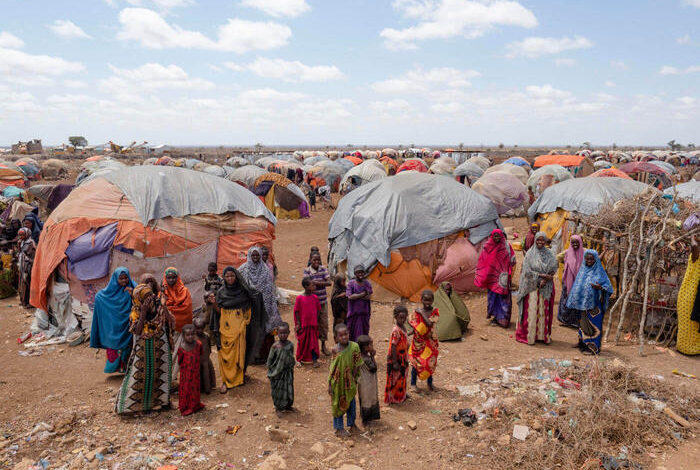More Regions In Somalia Hit By Highest Levels Of Famine, Food Insecurity
IPC Phase 5 famine is announced when 20 per cent of the population in an area currently has an extreme lack of food, resulting in critical levels of acute malnutrition and high levels of deaths.

Famine Early Warning System Network (FEWS NET) has revealed that eight areas in Somalia, including Baidoa and Buur Hakaba districts, are at risk of experiencing IPC Phase 5 famine.
IPC Phase 5 famine is announced when 20 per cent of the population in an area currently has an extreme lack of food, resulting in critical levels of acute malnutrition and high levels of deaths due to starvation or the interaction of malnutrition and disease.
According to an IPC analysis conducted by experts in multiple agencies, including the Food Security and Nutrition Analysis Unit (FSNAU), up to 7.1 million people in Somalia need urgent, multi-sectoral assistance to prevent and reduce ongoing hunger-related deaths.
Weather forecasts also predict a fifth consecutive poor rainfall in late 2022 is likely to occur, and chances of a below-average rainfall season in early 2023 in the eastern Horn of Africa would prolong extreme drought and its impacts into the coming year.
According to the FSNAU, the sorghum and maize harvest in July was almost a total failure, amounting to just 13 to 20 per cent of the average harvest from 1995 to 2021. It noted that at least 5 to 10 per cent of the total livestock population in the Bay Region of Somalia have died from drought since the middle of 2021.
Crop failure, limited grain supply from neighbouring countries, and global price shocks due to the Russia-Ukraine war have increased the price of sorghum – the staple food item in the area – by more than 200 per cent compared to normal, exceeding prices observed during Somalia’s 2011/2012 famine. The Bay Region was one of the areas most affected by the 2011 famine, which experts said claimed the lives of more than 250,000 people.
Marin Griffith, the Under-Secretary-General for Humanitarian Affairs and Emergency Relief Coordinator at the UN, stated, “Famine is at the door, and today we are receiving a final warning.”
He added that “the drought, the worst in four decades, is forecast to continue. This is, in those often-used words, and no more true than here, a humanitarian catastrophe.”
“We know that the needs will grow. The message that we are hearing from this report and that we are seeing in this country and that we are witnessing in the hospitals and the sites of displacement – and it is no doubt worse in the places of origin of those displaced – this message is urgent.”
In the absence of a scale-up of assistance, Griffith said providing more humanitarian aid is essential.
“Somalia knows, tragically, about famine, Somalis know about crises of hunger. And in 2016 and 2017, the people of Somalia and their Government, helped by humanitarian agencies, held back and prevented a famine and we must hope that we will see this again now.”
Support Our Journalism
There are millions of ordinary people affected by conflict in Africa whose stories are missing in the mainstream media. HumAngle is determined to tell those challenging and under-reported stories, hoping that the people impacted by these conflicts will find the safety and security they deserve.
To ensure that we continue to provide public service coverage, we have a small favour to ask you. We want you to be part of our journalistic endeavour by contributing a token to us.
Your donation will further promote a robust, free, and independent media.
Donate HereStay Closer To The Stories That Matter




